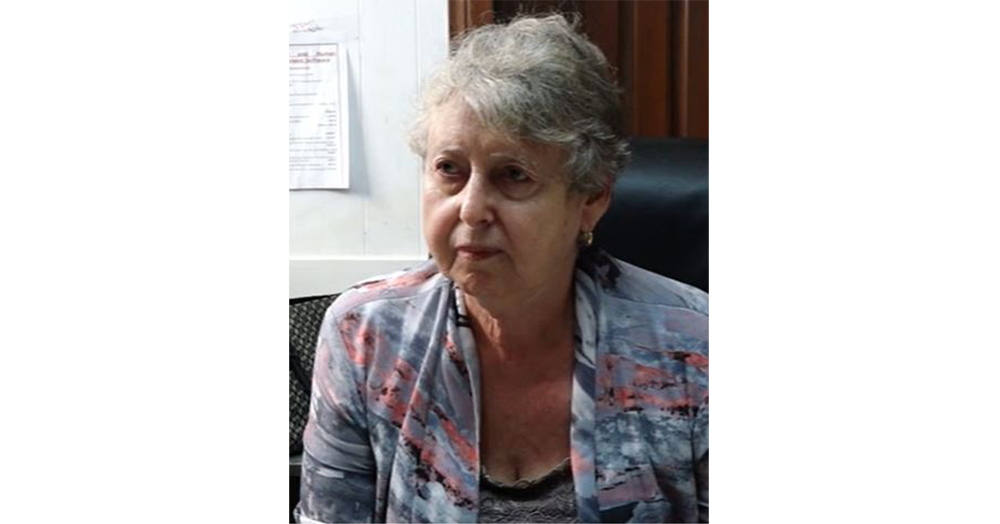Photo: Kathy Esquivel, Secretary of the Mental Health Association
by Charles Gladden
BELIZE CITY, Wed. Feb. 8, 2023
There have been several incidents over the last few months in which mentally unstable persons lost their lives due to the lack of mechanisms in place to protect those persons and a lack of awareness of the proper ways to respond to episodes of violence or instability on the part of those persons.
The results were tragic.
One such incident occurred in late November of last year, in downtown Belize City at the Swing Bridge, where cops fired shots that caused the death of Francis Ramos, 48, a mentally unstable man who was wielding a knife and charging at officers.
The records show that it was not the first time that Ramos had behaved in a violent or threatening way, especially toward law enforcement. In 2013, he was sentenced to 7 years behind bars after pleading guilty to attempted murder; and in 2021, he was charged with aggravated assault upon a police officer after charging at that officer with a machete; he was restrained then shot once to the leg.
Also, Nicole Polonio, 34, a mother of 4 in San Pedro Town, recently passed away after being restrained first with a galvanized chain and later with a sheet on a bed after she reportedly began banging her head against the walls, damaging property in her home, and walking around semi-nude in public.
To restrain her, Polonio’s sisters and daughter chained her hands and legs with a galvanized chain until five days later when they removed the chains and restrained her in a sheet which led to her demise.
In discussing such incidents, Kathy Esquivel, Secretary of the Mental Health Association, told local media that a few years ago, Belize moved away from institutionalizing persons with mental health issues as a way to reduce expenses. Esquivel and the Association are in support of de-institutionalization, which involves a shift toward support mechanisms for the mentally ill that primarily involve the efforts of family members.
“The move from institutionalizing, I think is a good move, and it happened worldwide; and fortunately, what happened is that the government just felt like they could save money by closing the institution, but they didn’t build the framework properly. We do have a good community in mental health framework in Belize, but everything else is not perfect, so ideally, families need to contact [professionals]. In every district, there are a polyclinic [and] mental health professionals that are there,” she said.
“… I think families are often at a loss on what to do. Families, for whatever reason, especially if someone is having a really acute episode, look to the information they have and try to do things like exorcisms and things of that nature, saying it must be a demon. Unfortunately, that makes the situation worse, because they’re [already] paranoid and people starting to do those kinds of things. The people going through these acute episodes need medical help,” she added.
Esquivel said that currently law enforcement officers lack the proper training in dealing with persons with mental challenges, and the Association is pushing for the establishment of a forensic unit.
“We have been lobbying and suggesting that Belize needs something called a forensic unit. This will be a very small unit, maybe six beds, because we do have acute mental beds in Belmopan and hopefully at the other hospitals. But when you have a case too dangerous [to deal with], the forensic unit would assess that person, stabilize them and send them wherever they should go. We know it’s difficult to find funding, but we think that at least, it should be in the plans,” she said.
Esquivel believes that in the incident on the Swing Bridge, officers shouldn’t have used force to subdue Ramos, and should have called on a professional to reason with him. In reference to incidents such as the death of Polonio in San Pedro, she has said that families facing such a situation should go to the polyclinic and seek their advice; and if that fails, they should take their loved one there.

